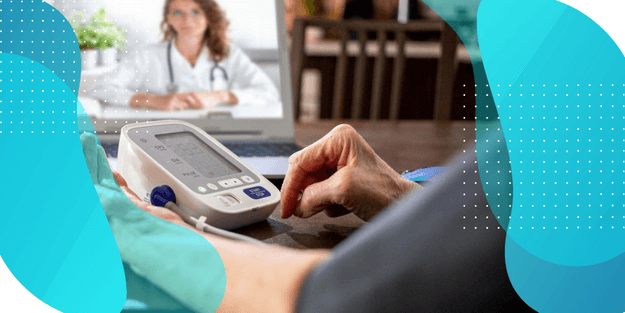Leveraging Today’s Technologies to Improve Clinical Research

Fully remote and hybrid trial methodologies promise to accelerate clinical research and make study participation more convenient through greater digitization. The site-patient connection no longer requires physical site visits – today’s solutions support local and at-home trial conduct. While technology has made this possible for years, the coronavirus pandemic has accelerated the adoption and implementation of digital methodologies at a magnitude beyond pilot testing or phased scale-up.
The recently published Innovations in Clinical Trial Methodologies: Lessons Learned during the Corona Pandemic, edited by Peter Schueler, Senior VP of Drug Development Services at ICON, explores this topic in greater depth. A second edition to the popular Re-engineering Clinical Trials, this latest book presents practical and valuable insights across several areas, including how to reduce study samples by leveraging historic data to act as a control and managing growing data volumes, in addition to how to limit at-site visits using home nurses and telemedicine-enabled “virtual visits.”
Signant Health is proud to support this publication by having one of their eCOA specialists, Dr. Bill Byrom, contribute a chapter on novel digital endpoints. Dr. Byrom explores the potential that new technologies, such as wearables, sensors, and gaming platforms, bring to derive pertinent and meaningful clinical endpoints in decentralized and traditional studies alike. These technologies provide opportunities to measure clinical endpoints remotely and more frequently, not to mention the chance to measure challenging constructs in a more robust or convenient way.
Novel digital endpoints derived from sensor data also offer richer insights into treatment effects. For example, leveraging smartphone sensors to instrument simple performance outcome tests enables rich, objective measures to be collected alongside patient-reported outcomes data using the same patient application. Similarly, measuring Parkinsonian tremor with the smartphone’s built-in accelerometer may provide a more comprehensive understanding of the patient’s tremor than simply observing on a fortnightly clinic visit.
Based on Dr. Byrom’s contribution to cross-industry working groups like C-Path and the DIA Study Endpoints Community, his chapter considers topics important in novel digital endpoint acceptance and adoption. You’ll discover how to find the right sensor/wearable to support specific studies and regulatory decision making along with the elements required in clinical endpoint development and validation.
Signant continues to develop and promote solutions for greater clinical trial digitization with the objective of obtaining better data and insights, as well as making study participation simpler. If you’re looking to leverage decentralized trial methodologies in your next clinical trial, pick up a copy today.
You can also contact us to learn more about any of the topics discussed above.


